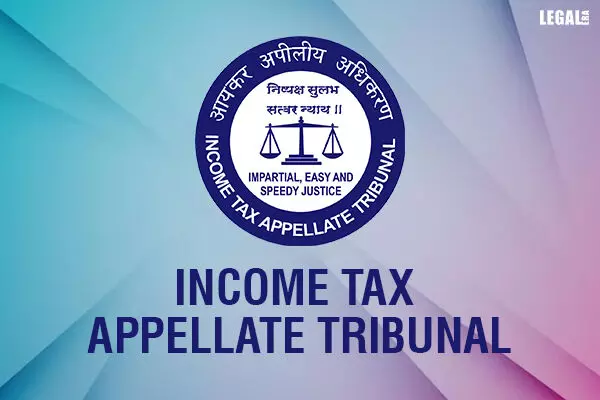- Home
- News
- Articles+
- Aerospace
- Agriculture
- Alternate Dispute Resolution
- Banking and Finance
- Bankruptcy
- Book Review
- Bribery & Corruption
- Commercial Litigation
- Competition Law
- Conference Reports
- Consumer Products
- Contract
- Corporate Governance
- Corporate Law
- Covid-19
- Cryptocurrency
- Cybersecurity
- Data Protection
- Defence
- Digital Economy
- E-commerce
- Employment Law
- Energy and Natural Resources
- Entertainment and Sports Law
- Environmental Law
- FDI
- Food and Beverage
- Health Care
- IBC Diaries
- Insurance Law
- Intellectual Property
- International Law
- Know the Law
- Labour Laws
- Litigation
- Litigation Funding
- Manufacturing
- Mergers & Acquisitions
- NFTs
- Privacy
- Private Equity
- Project Finance
- Real Estate
- Risk and Compliance
- Technology Media and Telecom
- Tributes
- Zoom In
- Take On Board
- In Focus
- Law & Policy and Regulation
- IP & Tech Era
- Viewpoint
- Arbitration & Mediation
- Tax
- Student Corner
- AI
- ESG
- Gaming
- Inclusion & Diversity
- Law Firms
- In-House
- Rankings
- E-Magazine
- Legal Era TV
- Events
- News
- Articles
- Aerospace
- Agriculture
- Alternate Dispute Resolution
- Banking and Finance
- Bankruptcy
- Book Review
- Bribery & Corruption
- Commercial Litigation
- Competition Law
- Conference Reports
- Consumer Products
- Contract
- Corporate Governance
- Corporate Law
- Covid-19
- Cryptocurrency
- Cybersecurity
- Data Protection
- Defence
- Digital Economy
- E-commerce
- Employment Law
- Energy and Natural Resources
- Entertainment and Sports Law
- Environmental Law
- FDI
- Food and Beverage
- Health Care
- IBC Diaries
- Insurance Law
- Intellectual Property
- International Law
- Know the Law
- Labour Laws
- Litigation
- Litigation Funding
- Manufacturing
- Mergers & Acquisitions
- NFTs
- Privacy
- Private Equity
- Project Finance
- Real Estate
- Risk and Compliance
- Technology Media and Telecom
- Tributes
- Zoom In
- Take On Board
- In Focus
- Law & Policy and Regulation
- IP & Tech Era
- Viewpoint
- Arbitration & Mediation
- Tax
- Student Corner
- AI
- ESG
- Gaming
- Inclusion & Diversity
- Law Firms
- In-House
- Rankings
- E-Magazine
- Legal Era TV
- Events
ITAT: Once sub-registrar accepts, IT department cannot term sale consideration illegal

ITAT: Once sub-registrar accepts, IT department cannot term sale consideration illegal
Deletes the addition made by the assessing officer and confirmed by the CIT (A)
The Surat bench of the Income Tax Appellate Tribunal (ITAT) has held that once the sale consideration is accepted by the sub-registrar local (revenue) or the concerned sub-registrar, the Income Tax department cannot treat it as illegal.
The assessee sold a rural agricultural land situated in Balwada, Taluka Chikhli in Surat. He claimed that the sale consideration of the land was exempt from taxation under Section 2(14) of the Income Tax Act.
The assessee admitted to an oversight and inadvertent mistake in not recording the consideration of Rs.25 lakh in the sale deed. However, he contended that the amount was part of the sale consideration and it was accepted by the purchaser. To rectify the mistake, a supplementary/rectification deed was executed before the sub-registrar to include the amount.
Even though the rectification deed was not registered by both parties, a supplementary/rectification deed was filed before the Commissioner of Income Tax (Appeals). However, it was treated as an afterthought. According to the senior DR, the credit received by the assessee was unexplained.
The bench of Pawan Singh (judicial member) observed that during the pendency of the appeal before the CIT(A), the assessee and the purchaser filed a supplementary/rectification sale deed before the sub-registrar, where the amount was added. The sub-registrar even accepted it.
The tribunal ruled that once the deed was accepted by the sub-registrar, it established that the subsequent payment of Rs.25 lakh was part of the sale consideration. Therefore, the matter should be considered settled.
ITAT held that the purchaser had accepted it was agricultural land through a confirmation affidavit and the supplementary/rectification deed. Thus, there was no justification for treating the credit of Rs.25 lakh as unexplained credit.
The tribunal deleted the addition made by the assessing officer (AO) and confirmed by the CIT (A).




